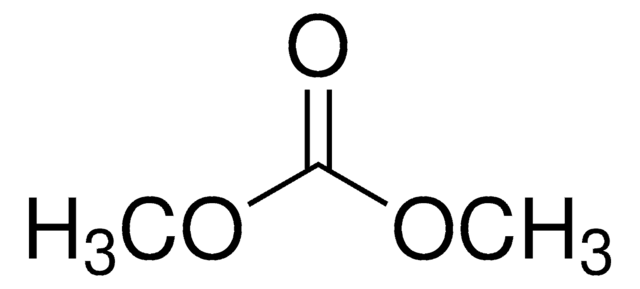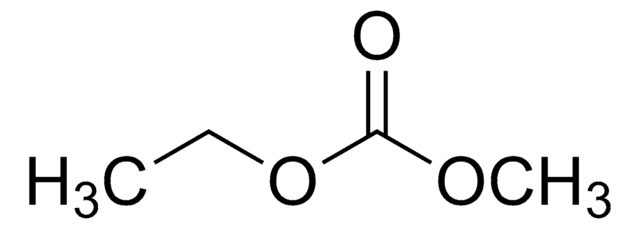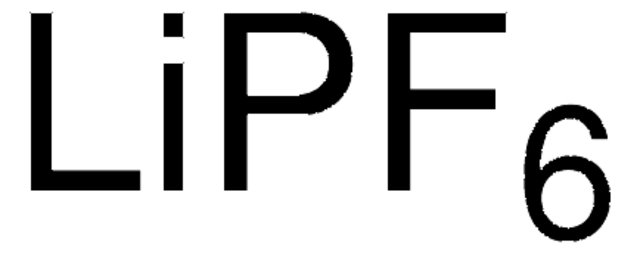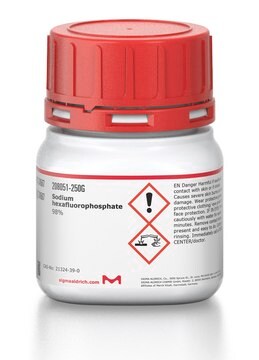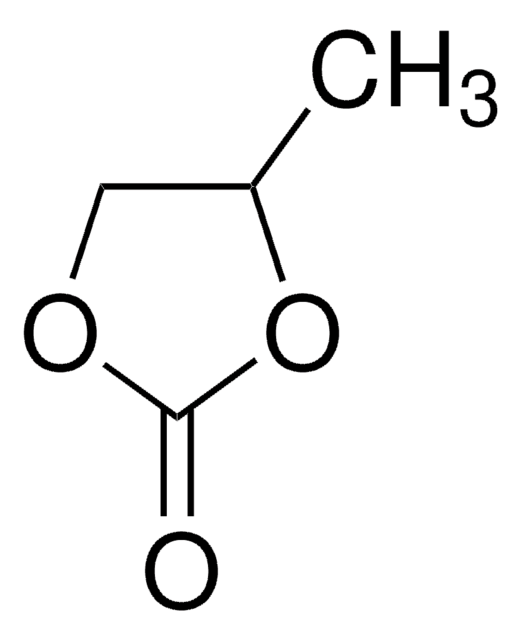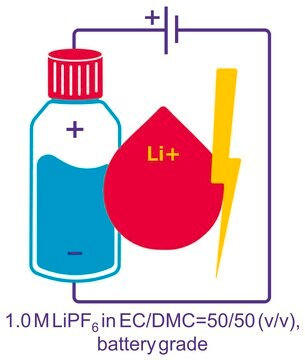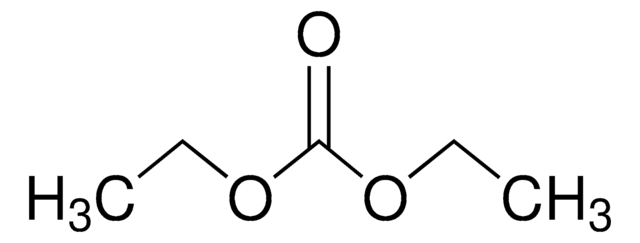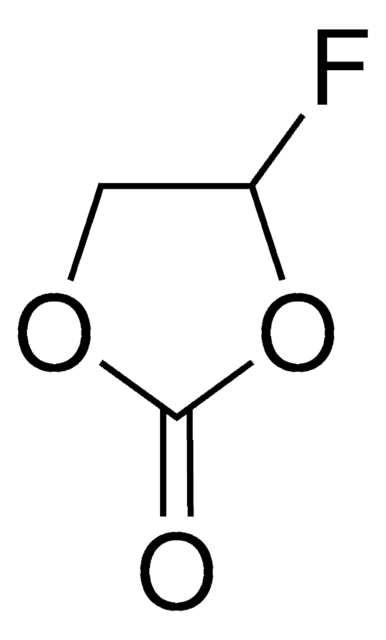809950
Ethylene carbonate
battery grade, ≥99%, acid <10 ppm, H2O <10 ppm
Sinónimos:
EC, 1,3-Dioxolan-2-one
About This Item
Productos recomendados
grade
battery grade
Quality Level
vapor density
3.04 (vs air)
vapor pressure
0.02 mmHg ( 36.4 °C)
assay
≥99%
form
solid
impurities
≤10 ppm H2O
≤10 ppm acid
bp
243-244 °C/740 mmHg (lit.)
mp
35-38 °C (lit.)
36 °C (exp.)
density
1.321 g/mL at 25 °C (lit.)
application(s)
battery manufacturing
SMILES string
O=C1OCCO1
InChI
1S/C3H4O3/c4-3-5-1-2-6-3/h1-2H2
InChI key
KMTRUDSVKNLOMY-UHFFFAOYSA-N
¿Está buscando productos similares? Visita Guía de comparación de productos
General description
Application
Caution
Legal Information
Related product
signalword
Warning
hcodes
Hazard Classifications
Acute Tox. 4 Oral - Eye Irrit. 2 - STOT RE 2 Oral
target_organs
Kidney
Storage Class
11 - Combustible Solids
wgk_germany
WGK 1
flash_point_f
289.4 °F - closed cup
flash_point_c
143 °C - closed cup
Elija entre una de las versiones más recientes:
¿Ya tiene este producto?
Encuentre la documentación para los productos que ha comprado recientemente en la Biblioteca de documentos.
Los clientes también vieron
Artículos
Dr. Schmuch, Dr. Siozios, Professor Dr. Winter, and Dr. Placke review the challenges and opportunities of nickelrich layered oxide cathode materials. They discuss production processes for the layered oxide cathode materials as well as their chemistry and morphology.
Due to the adverse impact of the continued use of fossil fuels on the earth’s environment and climate, researchers have been asked to develop new approaches for producing power using renewable sources like wind and solar energy
Here, we present a short review of ionic liquid electrolytes used in state-of-the-art rechargeable batteries including high performance and low-cost aluminum batteries, non-flammable Li-based batteries, and high-cycling and stable dual-graphite batteries. We also outline the key issues explored so as to identify the future direction of IL development.
Nuestro equipo de científicos tiene experiencia en todas las áreas de investigación: Ciencias de la vida, Ciencia de los materiales, Síntesis química, Cromatografía, Analítica y muchas otras.
Póngase en contacto con el Servicio técnico
